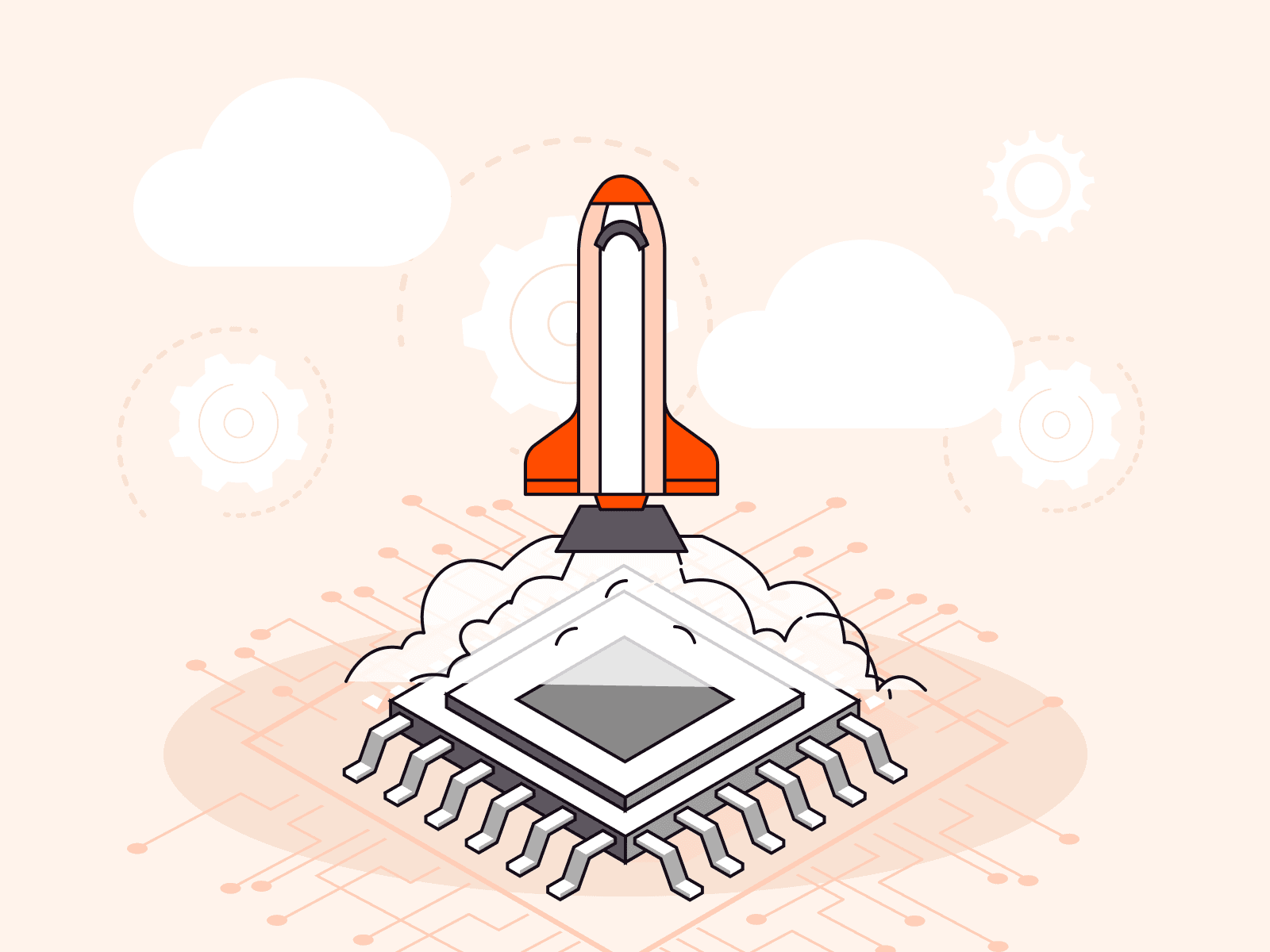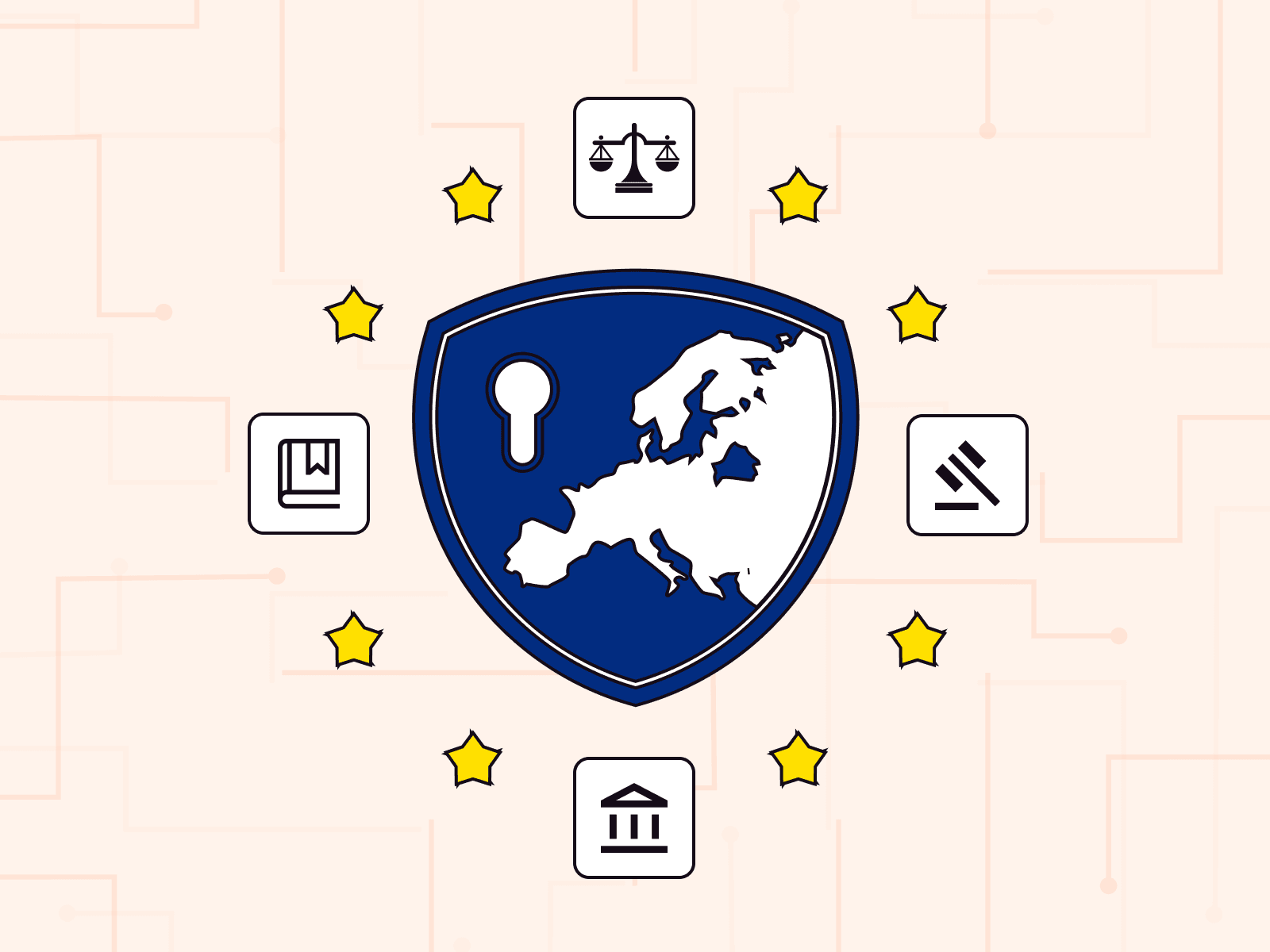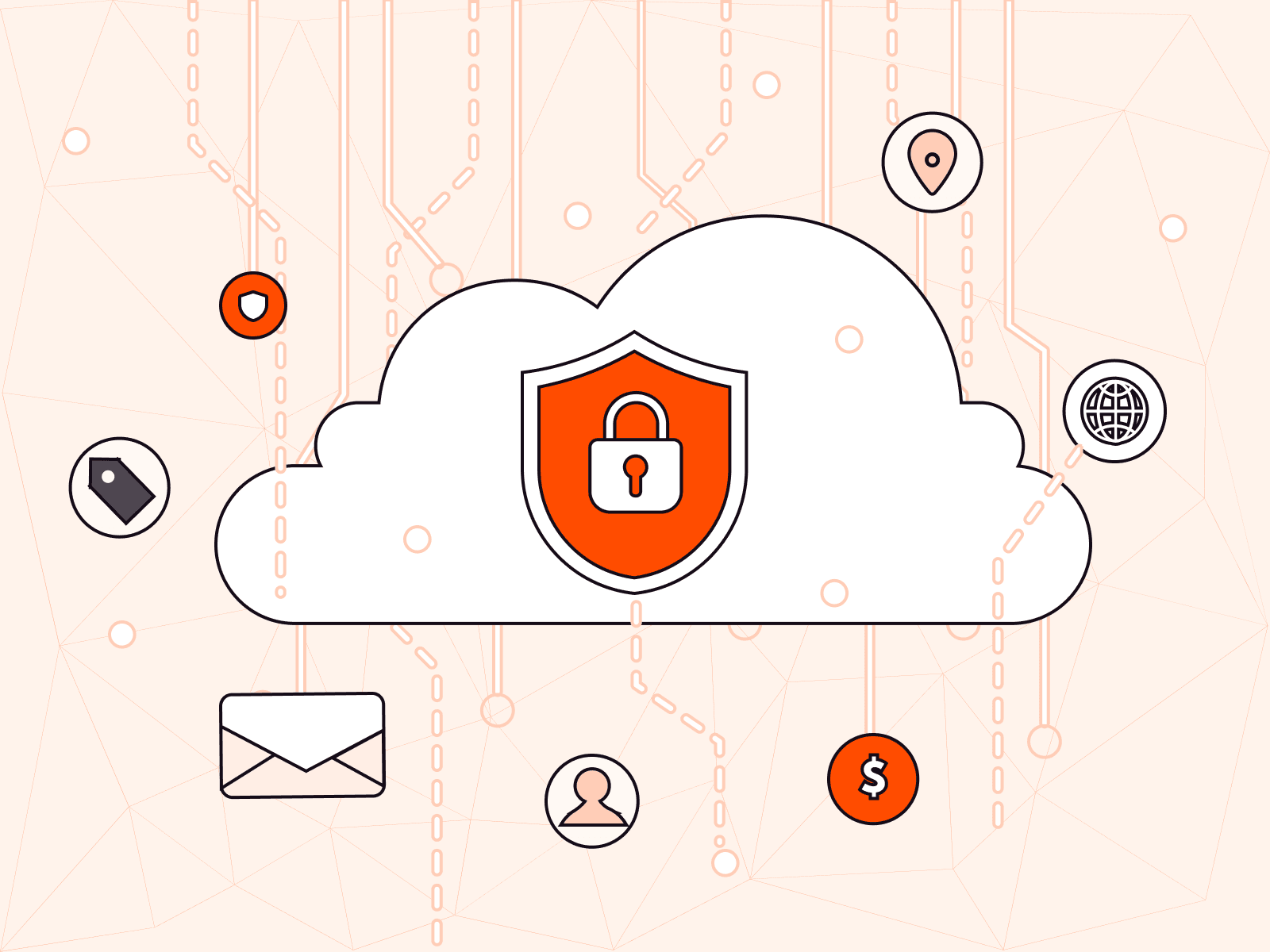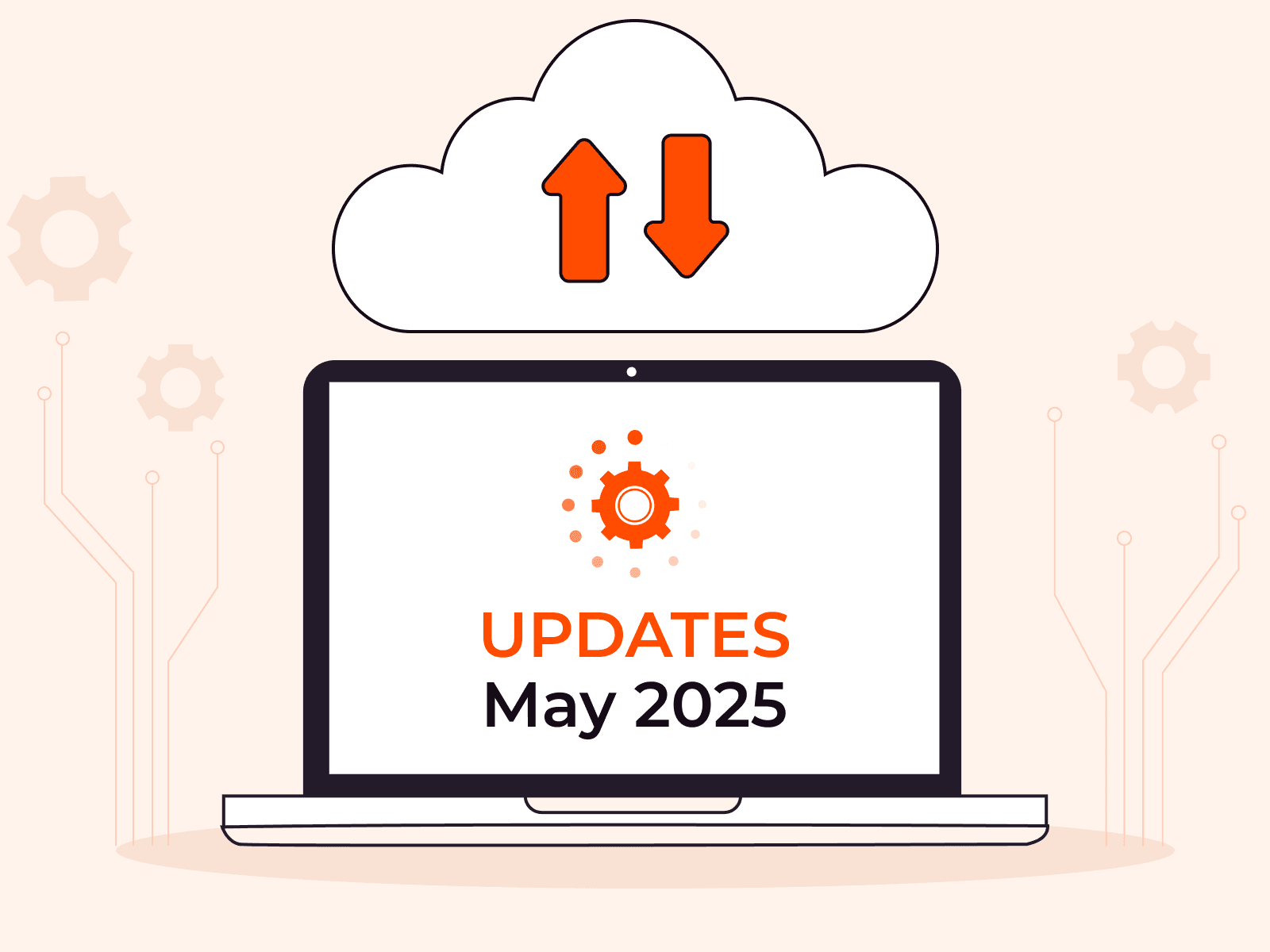Cloud services for fintech
- February 17, 2022
- 9 min read

It’s not news that business frantically migrates to the cloud. A study conducted by IDG Cloud Computing showed that companies do not just move their projects to the cloud: more than 55% of the respondents use the multi-cloud and spend around 32% of their IT budgets on the cloud infrastructure.
The financial sector is no different. However, there are certain intricacies when it comes to renting of computing capacities in this sphere. It is highly important to choose solutions and build the infrastructure so that it could really help business earn more money.
Here’s how financial services can choose the right cloud.
6 most basic IT infrastructure requirements for fintech applications
1. Security
It is the most important criterion in the fintech sphere. Financial services process user payment information and such information requires the highest level of security.

The infrastructure must ensure absolute security. This among other things is required by law.
PCI DSS. In order to offer financial services in Europe and the U.S., the service must gain PCI DSS certification. This is an international security standard for payment information processing. For a failure to meet the PCI DSS requirements, companies face fines of $5,000 to $10,000 and more.
2. High performance
As a rule, fintech applications work with massive amounts of data. They have to process a large number of transactions, data of millions of users and deliver information on a real time basis.

Investment services. Digital platforms enable beginner and professional investors to explore and use different financial assets. With such solutions, users receive analytical data, which allows them to improve investment efficiency. Servers of such applications must manage millions of transactions at a time.
This requires a lot of computing capacities. Companies will need high-end servers ready to handle big loads.
3. Low latency
Today, the running speed of an application is important virtually for any online business. Users hate waiting. They want everything to work instantly. Therefore, a good fintech application must be able to work with data on a real time basis.

Lending services. Imagine that you launch an instant small business lending service on the palm of your hand. The first thing you have to do is to ensure efficient processing of loan applications and interaction between creditors and borrowers. This concept is all about the fastest possible data processing, instant decision making and reply.
For example, this is how Kabbage works, an application business owners use to easily file a loan application, receive a decision, and start to use money in a few minutes.
Or, for example, you want to introduce a real-time assignment of interest rates in the application. This will require the fastest possible access to user profiles and information about assets.
For your service to work fairly fast, you need an infrastructure with the high bandwidth performance.
4. Flexibility and scalability
Businesses in the financial sector and fintech startups in particular are often growing quite rapidly. If considerable computing capacities are usually used in this sphere, as we have already said, it is very difficult to expand (or reduce) one’s own infrastructure.
Cloud solutions have tremendous advantages in that respect as they are more flexible.

Good infrastructure for fintech applications must be built so that you can at any moment increase or decrease the amount of computing capacities in the shortest possible time.
5. Process automation

Managing financial applications with lots of data is a very complex process prompting high professionalism of the IT team. And if employees are also spending time on different mundane tasks, such as connection of new servers, orchestration, various management procedures, the team’s load will be much higher.
To avoid this, there should be a way to automate some of these mundane tasks. That way, the team can get focused on more important things.
6. Spending optimization

Any business wants to meet their objectives with minimum spending on the IT infrastructure, but in fintech, it is especially important because, as we have already said, working with large amounts of data takes very many resources. Hence, the spending on the IT infrastructure will be considerable.
Spending control. The more spending you have, the harder it is to control it. Therefore, you should carefully track all expenses and try to best optimize each expense item not to spend too much.
By the way, it is easier to do it in the cloud, as you don’t spend any money on equipment delivery, maintenance, upgrade, disposal, etc. And many cloud service providers make available the spending statistics.
How to choose a cloud meeting these criteria
As we have already said, much depends on the aspects of a specific project. Below are 8 main points that you should certainly focus on.
1. International security standards compliance
PCI DSS. We have mentioned that for the fintech application to work in Europe and the U.S., its infrastructure must comply with the PCI DSS standard. So, choosing a provider, first of all, find out if a cloud is certified. Services without an appropriate certificate are definitely not for you.
Other certificates. Also, find out if a provider has other certificates confirming the high level of security, such as ISO 27001 (setting forth how to manage information security) or GDPR (governing collection, processing and storage of personal data of all EU residents).
Gcore Cloud has been successfully certified for compliance with the PCI DSS 3.2.1 standard with regard to storage, processing, and transfer of payment card details. Compliance was confirmed by the findings of the annual QSA audit conducted by Compliance Control Ltd.
Besides, our Cloud complies with other aforementioned standards: ISO 27001, and GDPR.
2. Extra protection of data in the cloud
So, you have chosen a reliable certified provider. But that’s not all. It is up to you to decide what cloud services to connect and how to organize the entire infrastructure. And it is also important not to make a mistake.
This is a matter for IT security professionals to deal with. But we can give you a few cloud-related tips.
Use bare metal. If you want to ensure a maximum level of security, it would be best to connect bare metal (physical) servers rather than virtual machines. By renting a virtual machine, you get only a part of computing capacities of the physical server, but in case of the bare metal, you will have the entire server.

This is considered a more secure solution, as in this case, the resource is fully isolated from other users. You don’t have any “neighbors” and the risk that someone can gain access to your data is lower.
Besides, you can roll out your own protection technologies and set your own security rules on the physical server.
Use additional protection mechanisms. Ask the provider if they offer any additional data protection mechanisms. With us, for example, you can put in place the Intel SGX encryption technology, a set of processor instructions, which applications can use to select private code areas and data and provide them with additional protection against disclosure or modification.
For more information about this technology, see the article “Why did we integrate Intel SGX into Gcore Cloud?”.
3. Unlimited access to computing capacities
This criterion has more to do with the choice of services inside the cloud rather than the choice of a specific provider. For fintech applications working with large amounts of data, we also advise choosing bare metal servers.
Virtualization limitations. Virtual machines are not the best choice for demanding applications, as the virtualization “tax” gets in the way of using 100% of their capacities. There are also problems due to platform resources allocation among different users: when a tenant overuses server capacities, its neighbors will pay for it in performance.
Unlike virtual machines, dedicated servers are more efficient in handling demanding tasks. With high loads demanding of the data processing rates, virtual machines lose up to 17% in performance compared to bare metal servers, the studies showed.

100% of bare metal capacities. The dedicated server user has full access and can single-handedly use all computational resources. Such an approach allows us to set up a higher-performance platform for receiving, processing, and storing data from the financial application.
With the bare metal server, you will not have to worry about slowdown due to the high load. Physical servers allow customers to use the entire capacity of the basic equipment.
4. High bandwidth performance
The infrastructure with high bandwidth performance is very important for ensuring minimum latencies.
Below are the things we advise that you pay attention to:
- Reliability level of data centers hosting the provider’s servers. The most reliable are Tier IV data centers. Tier III will do as well. While Tier I and Tier II data centers have longer downtime, which is why they are not suitable for fintech applications. For more information, see the article “Data center reliability levels”.
- Data center locations. It is critical to have servers as close to your customers as possible. The shorter the distance, the faster the requests will be delivered.
The servers of our Cloud are hosted by the Tier IV data centers in 15 different cities all over the world and we are constantly opening new locations.

CDN. If your customers live in different cities and countries, we suggest getting CDN to ensure minimum latencies. Gcore Cloud is integrated with our CDN. You can manage both services via the shared dashboard.
5. High-performance equipment
Not only the amount of computing capacities but also hardware play a major part in building a strong IT infrastructure for the fintech application. Pay attention to what server configurations the provider offers—if they can cope with high loads.
For example, NVMe drives and Intel technologies are used to ensure the high performance of servers. This year, Gcore Cloud was one of the first companies in the world to have integrated 3rd Gen Intel Xeon Scalable processors (Ice Lake) into its server infrastructure.
6. Quick changes in the quantities of resources consumed
Virtual machines can be scaled up easily. Any cloud allows users to promptly increase and decrease computing capacities. This is one of its main advantages over having one’s own infrastructure.
If you use virtual machines, you, as a rule, can change their configurations, add new or switch off unnecessary ones at any time just in a few minutes.
Bare metal servers are less flexible in that respect. In this case, you rent servers entirely and we have already said that in many respects they are better suitable for fintech than for virtual machines.
A good cloud service provider should allow customers to connect new physical servers (or delete them) just as fast as virtual ones.
Virtual machines + bare metal. In order to make your infrastructure much more flexible, we advise that you use bare metal servers and virtual machines together. Bare metal servers will be the backbone of your infrastructure, while virtual machines can be used, for example, to test new products or as additional capacities to counter traffic surges.

In our Cloud, you can connect both virtual and bare metal servers in a few clicks and combine them into a protected isolated network. You can create a flexible, secure and efficient infrastructure, which will deal with all the challenges of your business perfectly well.
7. Manageable infrastructure
API. It is equally important to have a manageable cloud and not to spend too many resources of the IT team. Some processes must be automated.
To that end, there should be an API with the straightforward documentation if nothing else. Using an API, you can automate adding, upgrading, and rebooting servers, for example.
Gcore Cloud has such an API. The cloud infrastructure can also be managed via the dashboard and using our own Terraform provider.
Terraform. This is an Infrastructure-as-Code tool, which comes in handy while using a multi-cloud. It describes the entire infrastructure in a single place through a set of configuration files. For more on this tool, see the article “Why you need Terraform.”
Managed Kubernetes. Also, we have recently launched Managed Kubernetes, which will automate management, scaling and update of containers.

Tools to expedite development. Manageability aside, if the provider offers any tools that will help you speed up internal processes, such as development of new products or work with databases, it would be a big plus.
For example, Gcore Cloud has an AI platform that makes machine learning faster and cheaper. This will help, if you create AI-based products.
8. Efficient spending control
Spending optimization and PAYG. The cloud is generally more profitable than having one’s own infrastructure. You don’t spend money on hardware maintenance and upgrade, disposal of outdated equipment, purchase and delivery of new servers and other such things. There will be fewer expense items, which means that spending control will be easier.
Besides, most cloud service providers offer a PAYG (pay-as-you-go) model, which means that you pay for the resources actually consumed. Unused equipment will not be idle.
For more information on how the cloud helps users save, see the article “How to optimize IT infrastructure spending”.
Spending reports. But the cloud itself should also be organized so that it generates no excessive spending. For that to happen, all your spending must be thoroughly controlled. Make sure you find out what opportunities to that end the provider has to offer.
For example, we have billing statistics and user reports that show how many resources you spend and what amount you have to pay.

This will help you get a clear idea where your money goes and how to better plan a budget.
How Gcore Cloud helps fintech solve business tasks
Our cloud meets all criteria we have mentioned above. And we have already helped many fintech companies. Here are few examples.
1. KHRSV Hedge Fund. With our Cloud, the investment fund increased the transaction rate by 50%. We helped companies automate some of the processes and provided a strong, easily scalable infrastructure. This enabled them to increase bandwidth performance and information processing rates.
2. Aggregion. Our cloud allowed the company to organize a secure and efficient shared environment for its customers to work with data about user purchases.
Our solution enabled the firm to promptly launch services and made the infrastructure available in all jurisdictions where Aggregion is present.
Let’s sum it up
- Like many other business spheres, fintech is actively using the cloud. But for the cloud infrastructure to solve tasks efficiently, it is important to choose the right services and a reliable provider.
- Security is the most important requirement for the infrastructure of fintech applications. The system must meet PCI DSS requirements.
- It is also essential that the infrastructure should handle high loads, ensure low latencies, be quite flexible and scalable. Automation of some of routine processes and maximum spending cuts would be a big plus.
- In order to choose a cloud that meets all these requirements, make sure you check if it complies with international security standards, where and in which data centers servers are hosted, what configurations the provider has to offer. Find out available options to manage the infrastructure and control spending.
- Bare metal servers are better suited for creating the most secure and efficient infrastructure than virtual machines. But if it is flexibility and scalability that you seek, we advise that you use both.
- Gcore Cloud will be an excellent solution for fintech applications. We have already helped many financial services meet their objectives. With us, you can connect virtual and bare metal servers in a few clicks and combine them into a secure private network.
Related articles
Subscribe to our newsletter
Get the latest industry trends, exclusive insights, and Gcore updates delivered straight to your inbox.






